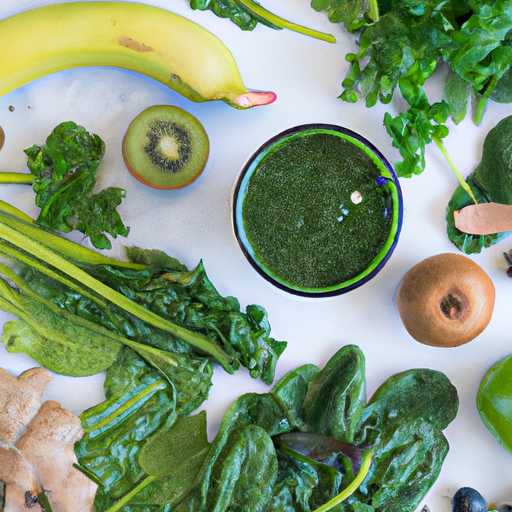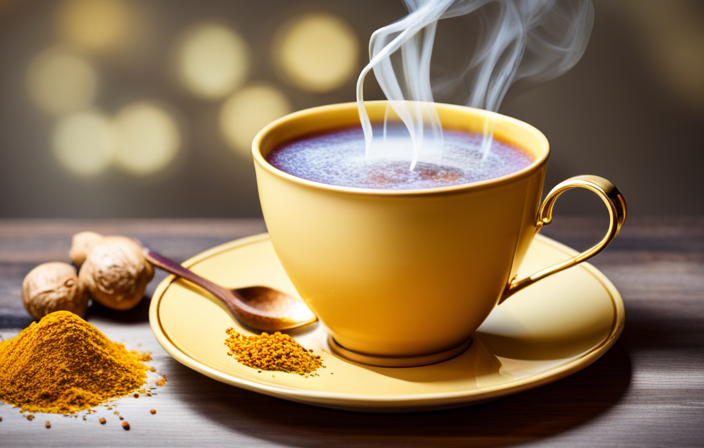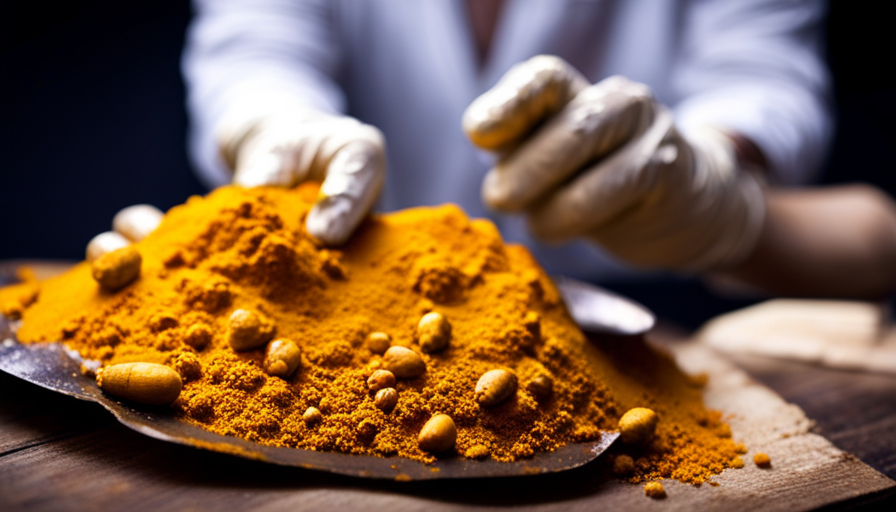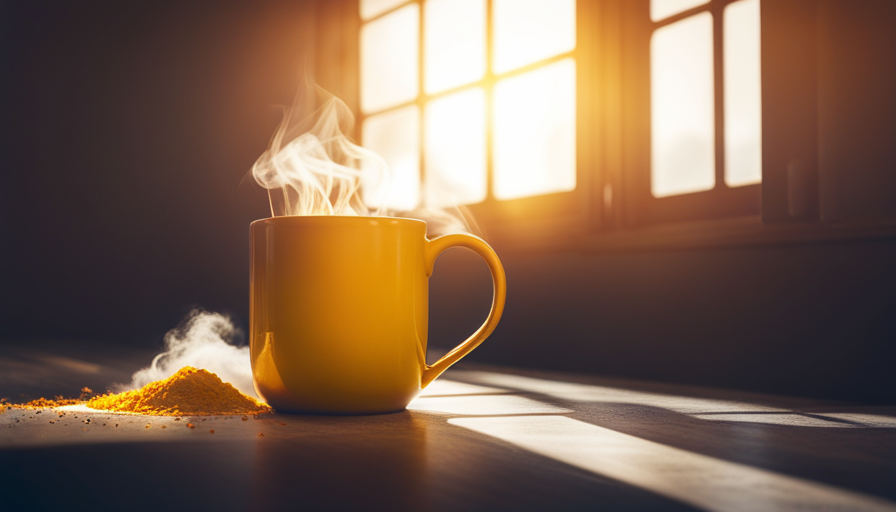Having dealt with constipation for a long time, I understand the frustration and discomfort it can bring. There are many remedies available for constipation, but one that has worked well for me is drinking tea. Specifically, certain types of tea have been proven to support regular bowel movements and relieve constipation.
In this article, I’ll be sharing what I’ve learned about which teas are best for constipation relief, how they work, and how to prepare and drink them for maximum benefit. Whether you’re a tea lover or just looking for a natural solution to constipation, I hope this article will be informative and useful for you.
Key Takeaways
- Herbal teas aid in digestion and nutrient absorption, helping relieve constipation.
- Peppermint, ginger, chamomile, and dandelion root teas have bowel-moving properties that promote regular bowel movements.
- Proper brewing techniques are crucial to extract all the beneficial compounds from the tea leaves.
- Bowel-moving teas should be consumed in moderation, with a maximum daily intake of 2-3 cups per day, and on an empty stomach, preferably in the morning, to stimulate the digestive system.
Understanding Constipation and its Causes
So, if you’re feeling backed up, it’s important to understand what’s causing your constipation. There are several factors that can contribute to constipation, including a lack of fiber in your diet, not drinking enough water, a sedentary lifestyle, certain medications, and even stress.
Some common symptoms of constipation include difficulty passing stools, infrequent bowel movements, abdominal pain or discomfort, and bloating.
Fortunately, there are several treatments and prevention methods that can help alleviate constipation. Increasing your fiber intake by eating more fruits, vegetables, and whole grains can help promote regular bowel movements. Drinking plenty of water can also help keep stools soft and easier to pass. Regular exercise can help stimulate bowel movements, while avoiding certain medications that may cause constipation can also be helpful.
In the next section, we’ll explore the role of tea in promoting digestive health.
The Role of Tea in Promoting Digestive Health
If you want to keep things moving smoothly, think of your digestive system as a well-oiled machine that needs regular maintenance to keep from getting clogged up like a backed-up drain.
One way to maintain digestive health is through the consumption of tea. Tea, especially herbal tea, has been found to have a positive impact on gut bacteria, known as the gut microbiome. A healthy gut microbiome is essential for proper digestion, as it aids in breaking down food and absorbing nutrients.
Certain herbal remedies have been found to be particularly effective for digestive issues. For example, peppermint tea has been shown to relieve symptoms of irritable bowel syndrome (IBS), including bloating and abdominal pain. Ginger tea, known for its anti-inflammatory properties, can also help alleviate digestive distress caused by conditions such as acid reflux and indigestion.
These teas, along with others, will be discussed in more detail in the subsequent section about the best teas for constipation relief.
Best Teas for Constipation Relief
Looking for natural ways to keep things moving? Check out these teas that can provide relief from constipation.
1) Chamomile vs Peppermint: Both chamomile and peppermint teas have been found to have anti-spasmodic effects on the digestive tract, helping to relax the muscles and promote bowel movements. Chamomile has also been shown to have anti-inflammatory properties that can reduce inflammation in the gut, while peppermint has been shown to have a cooling effect that can soothe the digestive system.
2) Herbal vs Black Tea: Herbal teas, such as senna tea and dandelion root tea, are known for their laxative properties and can provide quick relief from constipation. Black tea, on the other hand, contains caffeine which has been shown to stimulate the digestive system and increase bowel movements.
When preparing and drinking tea for maximum benefit, it’s important to remember to steep the tea for the appropriate amount of time, as this can affect the concentration of the active compounds.
Additionally, drinking plenty of water throughout the day can help to keep the digestive system hydrated and functioning properly. With these tips and the right tea selection, constipation can be a thing of the past.
How to Prepare and Drink Tea for Maximum Benefit
When it comes to preparing and drinking tea for maximum benefit, there are a few key points to keep in mind.
First and foremost, proper brewing techniques are crucial in order to extract all of the beneficial compounds from the tea leaves.
Additionally, it’s important to be mindful of recommended dosage and frequency to avoid any negative side effects and ensure optimal results.
As someone who’s experienced the benefits of tea firsthand, I can attest to the importance of these factors in achieving the desired effects.
Proper Brewing Techniques
Brewing the best bowel-moving tea requires precise preparation and practiced patience. To start, it’s important to select the right type of tea that can aid in digestion and promote bowel movement. Some of the best teas for this purpose include peppermint, ginger, and dandelion root tea. Once you’ve chosen your tea, it’s time to focus on the brewing process.
Tea brewing techniques can vary depending on the type of tea you’re using. For example, green tea should be brewed at a lower temperature than black tea to prevent bitterness. It’s also important to pay attention to the steeping time, as over-steeping can result in a bitter flavor. To ensure the best flavor profile and maximum benefit for your digestive system, refer to the chart below for recommended brewing techniques for some popular bowel-moving teas.
| Tea Type | Water Temperature | Steeping Time |
|---|---|---|
| Peppermint Tea | 200°F (93°C) | 3-5 minutes |
| Ginger Tea | 212°F (100°C) | 5-10 minutes |
| Dandelion Root Tea | 212°F (100°C) | 7-10 minutes |
Now that you know the proper brewing techniques, it’s important to also consider the recommended dosage and frequency for consuming bowel-moving tea.
Recommended Dosage and Frequency
To achieve optimal results, it’s important to consume bowel-moving teas in moderation and at recommended intervals. While these teas can be effective in promoting regular bowel movements, overconsumption can lead to adverse effects such as diarrhea, dehydration, and electrolyte imbalances.
It’s recommended to start with a small dosage and gradually increase as tolerated, with a maximum daily intake of 2-3 cups per day. Timing is also crucial when it comes to consuming bowel-moving teas.
It’s best to drink them on an empty stomach, preferably in the morning, to stimulate the digestive system and promote regularity. However, it’s important to avoid drinking them too close to bedtime, as this can lead to disruptions in sleep patterns and interfere with the body’s natural bowel movements.
By following these dosage guidelines and timing recommendations, bowel-moving teas can be a safe and effective way to promote healthy digestion and regular bowel movements. When it comes to promoting healthy digestion, there are other tips to consider beyond just consuming bowel-moving teas.
Other Tips for Promoting Healthy Digestion
When it comes to promoting healthy digestion, there are a few diet and lifestyle changes that have been proven effective. For instance, increasing fiber intake, staying hydrated, and exercising regularly can all help alleviate constipation.
However, if these changes don’t work or if you experience severe symptoms such as abdominal pain or blood in stool, it’s important to seek medical attention as these could be signs of a more serious condition.
Diet and Lifestyle Changes
If you’re looking to have a bowel movement, you should consider making some dietary and lifestyle changes. Here are three things that have helped me in the past:
-
Incorporating more fiber into my diet: Fiber is essential for healthy digestion and can help promote regular bowel movements. I try to incorporate fruits, vegetables, whole grains, and beans into my meals to increase my fiber intake.
-
Staying hydrated: Drinking plenty of water and other fluids can help soften stools and make them easier to pass. I aim to drink at least 8 glasses of water a day and avoid sugary drinks and caffeine, which can dehydrate the body.
-
Regular exercise: Physical activity can help stimulate the digestive system and promote bowel movements. I try to incorporate at least 30 minutes of exercise into my daily routine, whether it’s a brisk walk, yoga, or strength training.
By making these dietary and lifestyle changes, I’ve noticed an improvement in my bowel movements. However, if these changes don’t help, it may be time to seek medical attention for constipation.
When to Seek Medical Attention for Constipation
I hope the previous subtopic on diet and lifestyle changes was helpful. However, if you’ve tried making those changes and still experience constipation, it might be time to seek medical attention.
As someone who has dealt with chronic constipation, I understand how frustrating and uncomfortable it can be. But there are some symptoms that you should watch out for to determine if your constipation is a sign of a more serious condition.
One of the common misconceptions about constipation is that it’s a normal part of aging. While it’s true that older adults are more prone to constipation, it’s not something that should be accepted as a natural part of getting older.
If you’re experiencing constipation along with abdominal pain, bloody stools, or unexplained weight loss, it’s important to see a doctor. These symptoms can be signs of a more serious condition such as colon cancer or inflammatory bowel disease.
So, don’t hesitate to seek medical attention if you notice any of these symptoms.
Frequently Asked Questions
What are the best foods to eat to prevent constipation?
To prevent constipation, I recommend sticking to a fiber-rich diet with plenty of fruits, vegetables, and whole grains. It’s also important to stay hydrated by drinking plenty of water and avoiding caffeine and alcohol.
Can drinking too much tea cause constipation?
Drinking excessive tea can lead to dehydration, which can result in constipation. However, not all teas have the same effect. Some herbal teas, such as senna and dandelion, may help promote bowel movements.
Are there any teas that are not recommended for people with digestive issues?
As someone with digestive issues, it’s important to avoid teas that can exacerbate symptoms. Teas high in caffeine or tannins, such as black and green tea, can irritate the digestive tract. Herbal teas like peppermint or ginger may offer relief and help promote bowel movements.
How long does it typically take for tea to have a bowel movement-promoting effect?
Tea can have a bowel movement-promoting effect within a timeframe of 6-8 hours. However, the effectiveness varies depending on the type of tea and the individual’s digestive system. It is important to stay hydrated and consume tea in moderation.
Are there any potential side effects of drinking tea for constipation relief?
As someone who frequently uses tea for constipation relief, I’ve researched its safety and long term effects. While tea is generally safe, excessive use can lead to dehydration and electrolyte imbalances. Consult with a healthcare provider for personalized advice.
Conclusion
Well, folks, it seems we’ve come to the end of our tea journey.
We now know that certain types of tea can be beneficial in promoting bowel movements and relieving constipation.
But let’s be real for a moment – drinking tea alone won’t solve all of your digestive issues.
Despite the promising effects of tea, it’s important to remember that a healthy diet and lifestyle are the true keys to regularity.
So, while sipping on a warm cup of tea may provide some temporary relief, don’t forget to also incorporate plenty of fiber, water, and physical activity into your daily routine.
And with that, I bid you adieu – may your tea be strong and your bowel movements be even stronger!










